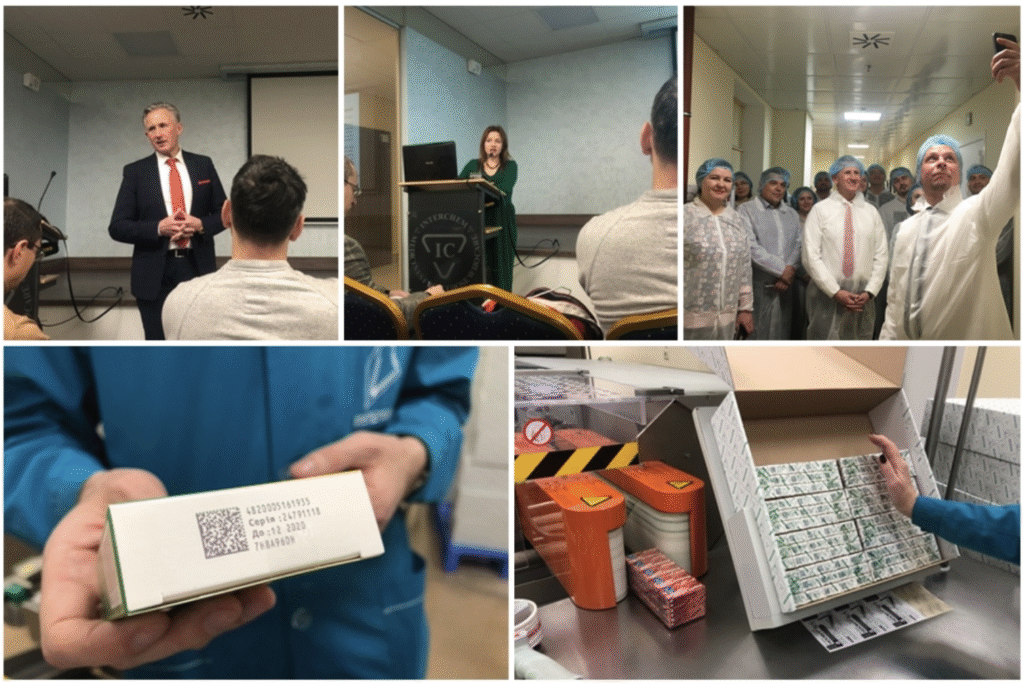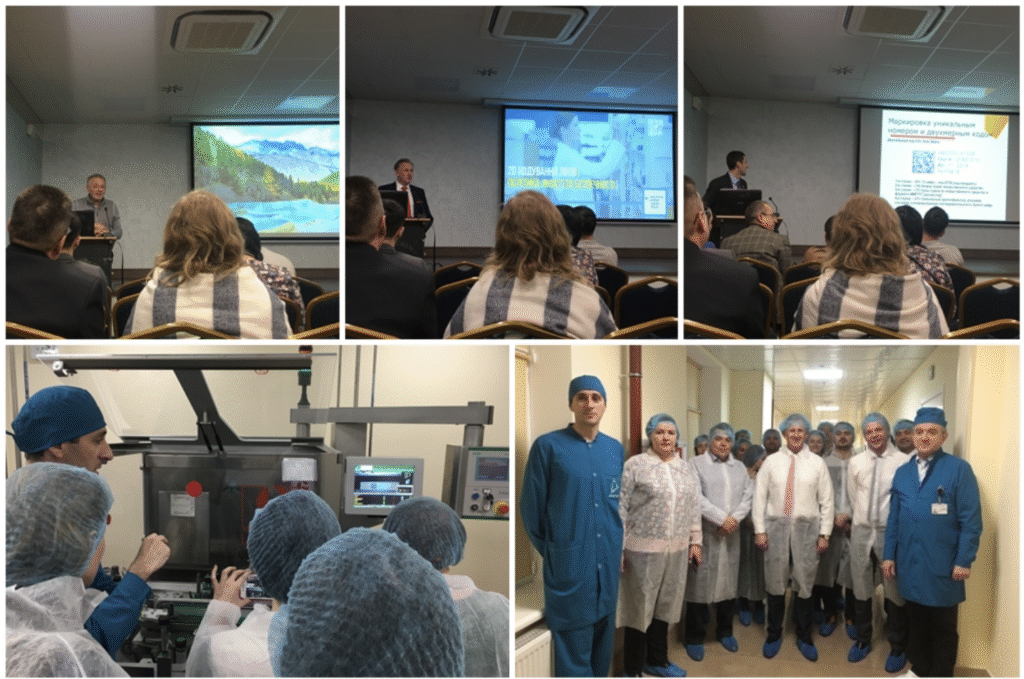Our managers will contact you as soon as possible.
For more than a decade, InterChem SLC has operated an end-to-end 2D coding system for medicines. The company was the first in Ukraine to fully implement this technology at its Odesa-based facility—applying two-dimensional verification codes to every package of all products manufactured.
The 2D coding system not only helps eliminate counterfeit and falsified medicines from the market but also guarantees that patients receive products of verified quality.
Over the years of using 2D coding, InterChem SLC has accumulated valuable analytical data on regional product demand and uses it to forecast production volumes for the following year.
Additionally, this mechanism allows not only healthcare professionals but also patients themselves to verify the authenticity and quality of InterChem SLC medicines by scanning the code and entering the alphanumeric combination on the company’s website—specifically on the Product Authenticity Verification page.
Globally, 2D coding of medicinal products is not a new concept. It has been successfully implemented in many countries and, since 2019, has become a mandatory requirement across the European Union. As the introduction of medicine traceability through 2D coding aligns with the EU–Ukraine Association Agreement, it represents a practical step in Ukraine’s European integration process.

InterChem SLC became a participant in the Ministry of Health’s pilot project on medicine serialization. A major milestone toward the widespread adoption of this practice among Ukrainian pharmaceutical manufacturers was a round table held in 2018 by the Ministry of Health of Ukraine, hosted at the InterChem facility—the only enterprise in the country that had already been effectively tracking its finished products for several consecutive years.
“The introduction of 2D coding is a powerful tool that can transform both our understanding and the reality of the pharmaceutical market in Ukraine. It will not only guarantee that a medicine is not falsified, expired, or imported in violation of regulations but will also protect responsible pharmaceutical businesses.
Mandatory serialization will be implemented in parallel with an automated medicine traceability system — a centralized database containing all information about each package, from production to the specific patient who purchased it at a pharmacy.
According to the World Health Organization, nearly one in ten packages of medicine in low- and middle-income countries is falsified. A similar situation exists with counterfeit drugs that enter the Ukrainian market illegally or without proper control,” — said Roman Ilyk, then Deputy Minister of Health of Ukraine, during the round table discussion.

Information in this section, including prescription drugs of INTERCHEM SLC, is intended only for doctors, pharmacists, students of medical and pharmaceutical universities, and can be used only in professional activity.
Do you confirm that you are a certified medical specialist and have acquainted with this restriction of information obtaining?
(choosing the answer, you are responsible for the accuracy of the information provided)
Our managers will contact you as soon as possible.